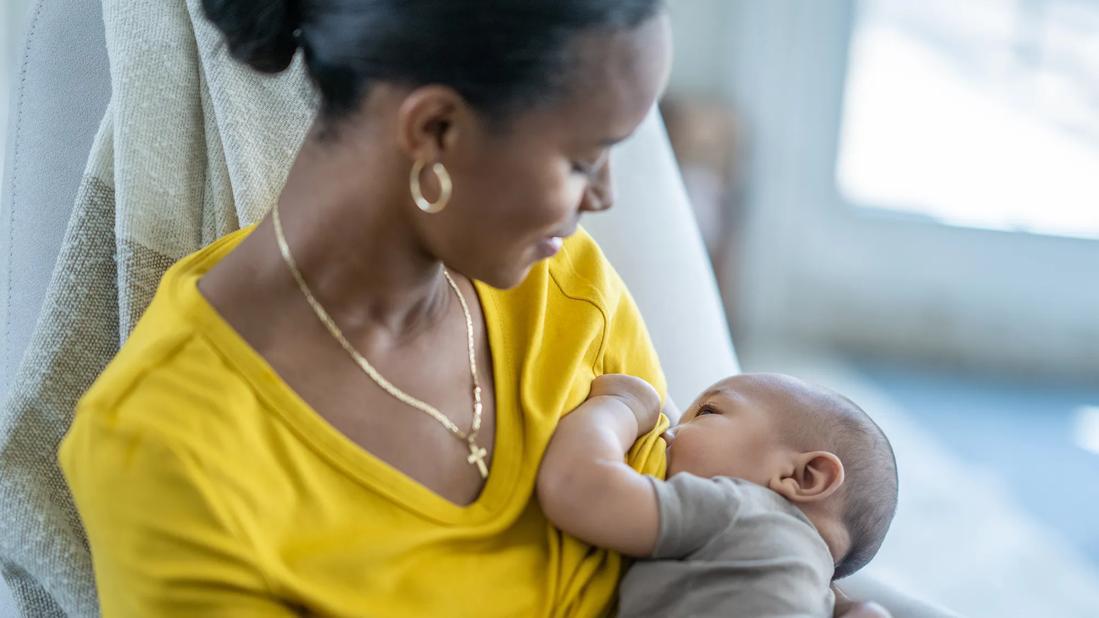Is Honey Safe To Eat When Breastfeeding?
Yes, you can have honey if you’re breastfeeding — but never feed it directly to babies under 1

You know that while you’re breastfeeding, certain foods may get passed through your breast milk and affect your baby. Is honey one of them?
Why honey is safe while breastfeeding
Yes, it’s safe for women who are breastfeeding to eat honey, says family medicine physician Jeffrey Brown, DO. But it’s still important that babies don’t eat honey themselves until after their first birthday.
The worry is that honey — particularly the raw, unpasteurized kind — can cause botulism.
But that’s only if your baby consumes honey directly. If you’re breastfeeding and consume honey that contains botulism toxin, it won’t affect your breast milk or harm your baby.
“Botulism toxin is a fairly large molecule, so it doesn’t get into breast milk,” Dr. Brown explains. “There have even been a few case studies on women who had acute botulism themselves and continued to breastfeed, and the babies were unaffected.”
That makes honey different from other substances that can be passed through breast milk and should be avoided or limited when you’re breastfeeding, like:
- Alcohol
- Caffeine
- Fish with high levels of mercury (like shark, mackerel and swordfish)
- Certain medications
In healthy older kids and adults, your immune system takes care of any botulism toxin in honey, neutralizing the threat before it can do any damage.
Babies and honey
Babies are born with very underdeveloped immune systems, which can leave them vulnerable to all kinds of illnesses. Infant botulism is one of those diseases.
In 2019, there were 215 cases of botulism reported in the United States, according to the U.S. Centers for Disease Control and Prevention (CDC). Of those, 152 cases (71%) were in infants.
The number may sound low, but the risk is 100% not worth it.
“If babies consume honey with the botulism toxin, they don’t have a strong enough nervous system to ward off the effects,” Dr. Brown shares. “For babies under 1 year old, it can be life-threatening.”
Botulism causes progressive paralysis. Symptoms include:
- Weak crying
- Poor feeding
- Trouble breathing
- Weak muscles, like not being able to smile, lift their head or move their arms
It’s worth noting, as Dr. Brown points out, that honey and foods that contain honey are the only ones known to transmit botulism to babies. So, no need to worry that some other food will give your baby botulism.
Honey and breastfeeding benefits
It’s possible that small amounts of honey can have benefits if you’re breastfeeding.
But remember, honey is sugar (glucose, to be exact). And no one needs to go out of their way to consume more sugar.
“You can enjoy a bit of honey in your tea or swap it for refined sugar in a recipe, but there’s no reason to focus on eating more of it. The possible benefits don’t outweigh the risks of the extra calories,” Dr. Brown states.
Among its possible benefits:
- Cough and cold relief: When you’re breastfeeding, you may be advised to avoid over-the-counter cough and cold medicine. But a bit of honey, say, in your favorite tea, can help keep your cough at bay and soothe your sore throat.
- Potential immune-system boost: Manuka honey may have immune system-boosting benefits. When you’re breastfeeding, having a strong and healthy immune system can boost baby’s immune response, too.
- May enhance milk production: There are a lot of foods and supplements that claim to boost your milk production. And Dr. Brown says some researchers suggest honey may be one of them, but more research is needed.
If you’re breastfeeding and concerned about how the foods you eat affect your baby, talk with a healthcare professional, like a pediatrician, family medicine physician, lactation specialist or women’s health expert. They can answer your questions and make sure what you eat is safe for you and your baby.